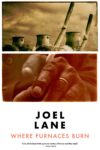Bryan Hurt’s Everyone Wants to Be Ambassador to France is an instant classic.  This hilarious, stylistically eclectic, and emotionally complex collection of multimodal short stories is automatically more entertaining, more biting, and more original than the last thing you’ve probably read. In many ways, Hurt’s book is both an antidote to literary fiction in general (that is perpetually high on craft and low on content) and also a creative act of defiance toward the MFA program, which continues to churn out talented (but voice and style-deficient) fiction writers mind-controlled by workshop dogma (e.g., show don’t tell, I don’t have an emotional connection with this story, your characters aren’t likeable, avoid clichés like the plague). There are of course a million different reasons to read a collection of short stories, but Everyone Wants to Be Ambassador to France, satisfies the literary fiction conceit of giving the reader insight into the human condition using original and controlled language, the experimental conceit of playing with form, voice, and structure while upending narrative and sometimes plot linearity, and the commercial fiction conceit of entertaining the reader with plot, accessibility, and in this case, humor. It’s no small feat to write a collection that incorporates, challenges, and also defies the respective genre conventions of its own stories, but that’s exactly what these stories do. To some extent, we’ve all become numb to corporate publishing. Hurt’s book will remind you that reading can be smart, funny, and still culturally incisive.
This hilarious, stylistically eclectic, and emotionally complex collection of multimodal short stories is automatically more entertaining, more biting, and more original than the last thing you’ve probably read. In many ways, Hurt’s book is both an antidote to literary fiction in general (that is perpetually high on craft and low on content) and also a creative act of defiance toward the MFA program, which continues to churn out talented (but voice and style-deficient) fiction writers mind-controlled by workshop dogma (e.g., show don’t tell, I don’t have an emotional connection with this story, your characters aren’t likeable, avoid clichés like the plague). There are of course a million different reasons to read a collection of short stories, but Everyone Wants to Be Ambassador to France, satisfies the literary fiction conceit of giving the reader insight into the human condition using original and controlled language, the experimental conceit of playing with form, voice, and structure while upending narrative and sometimes plot linearity, and the commercial fiction conceit of entertaining the reader with plot, accessibility, and in this case, humor. It’s no small feat to write a collection that incorporates, challenges, and also defies the respective genre conventions of its own stories, but that’s exactly what these stories do. To some extent, we’ve all become numb to corporate publishing. Hurt’s book will remind you that reading can be smart, funny, and still culturally incisive.
Jackson Bliss: I see the influences of Aimee Bender, the Grimm brothers, and Jim Shephard throughout your story collection. Did you find consolation in their writing? Inspiration? New ideas?
Bryan Hurt: One of the things I like most about writing is that it allows me to create more of what I love in the world. I love the work of Bender and Shepard and have studied writing with both of them. They’ve taught me so much and so of course I count them as influences. With some of the stories in this collection, especially the ones that I wrote earliest, I set out to re-create and make my own inferior versions of the types of stories that I really love. Could I write an historical story like Jim Shepard? Could I write a cosmic story like Calvino? A fairytale like Bender? Usually the thing that kept me from out-and-out copying was my own incompetence. Somewhere along the way I always misinterpreted or got things wrong and so accidentally developed my own voice and sense of style. The story “All of the Arctic Explorers,” for example, was my attempt to sort of out-Shepard Shepard. He usually writes about single historical tragedies, and of course his stories are really, really great. I wondered what would happen if I tried to write about a tragedy repeated over and over again, a multiplicity of a single failure. So I took the idea and ran in my own direction. I hope my version of a historical tragedy story turned into something interesting and unique. I have to say that nowadays I don’t think so much in terms of models. Sometimes I give myself somewhat arbitrary technical constraints (write a story in first person singular, or write a story with a hyper-clear sense of conflict and rising action), but usually I just have a single sentence in mind. I try to let follow the rhythm and logic of the sentence, trusting that it will lead me somewhere interesting.
Do you consider yourself a fabulist? A conceptualist? Or do you just write whatever comes to mind regardless of the fiction genre?
I don’t worry too much about labels or genre. I like to think fiction sort of operates like improv. Once I get writing, my job is to step out of the way, not overthink things, and say “yes and” to the ideas I generate. Sometimes this technique can get a little chaotic and overly fanciful, as I’m sure you saw when we were taking fiction workshops together. But then my job is to go back to the beginning of the story and trace the thread that feels most compelling, that holds together all of the different parts, unclutter, and cut.
What do you think Calvino would say about your collection? Which short stories would he understand or appreciate the most in your opinion?
You know that I really love Calvino. I mean, I think his writing is the best. But I don’t know much about him as a person. I have no idea what he’d think of my writing. I hope that he’d like it. But I hope that lots of people like my writing. I very much believe that we read for pleasure, and so I want my own writing to create some kind of joy. Even in sad stories I try to be joyful. I make a pretty conscious effort to write things that give me pleasure. The hope is that some other people take some pleasure in my writing as well.
The stories in this book are very eclectic: some are straight up narrative, some are obviously satirical, and a few are fabulist, metafictional, or experimental. Do you feel like you have an aesthetic M.O. when you write short fiction? Does your collection reflect a stylistic trajectory or simply reflect the diversity of your own genre tastes?
Look who’s talking! One of the things I really admire about your writing is how bravely you take on different styles and genres. Compared to you, I feel like my writing is pretty tame. But I guess if I have an M.O. it’s that I try not to repeat myself. If I try something once and am happy with it, then I don’t usually see a reason to try the same thing again. That said, I do notice repetitions in my work, but I think they tend to be more thematic. I can look at a bunch of stories that I wrote five years ago and have a pretty clear picture about what I was really concerned with at the time (intimacy and relationships, by the way). Nowadays I find myself writing a lot about childhood. It’s not a super conscious decision, but I think it makes sense. I have a two year old son and I am really interested in his experiences. Childhood is so scary and joyous and strange.
Fill in the blank. No scatology. I’m a ________________ fiction writer and I like to__________________in my writing.
It’s funny how much I find myself resisting this one. I really don’t care too much about labels. But here goes: I’m a teacher and a fiction writer and I like to have fun in my writing. I really can’t overstate the fun part. Writing is hard and frustrating. It often makes me feel humble and dumb. But at the same time I can’t think of much that I enjoy more. There’s my family, my dog, and my writing. I like listening to music and playing video games, too, but can get a shame hangover from too much video game playing because life on earth is short and etc. etc. Writing, and my enjoyment of writing, seems pretty pure.
What draws you to the short story? Are you working on a novel or do you prefer the short form?
I can’t say that there’s one particular thing that draws me to the story form, which is maybe why I like the form so much. Stories can do anything. You want a deep exploration of consciousness? Something linguistically dazzling? A story that plants truth bombs in your head and explodes the world you thought you knew? Something that will make you laugh? That will make you cry? That will make you laugh and cry in the same breath? It’s such a generous form. I like novels an awful lot too and am trying my hand at something longer. I’m really struck by the differences between stories and novels. I think there’s a certain point in every story I write where I get a sense of the ending — not what’s going happen necessarily but the emotion that I want the ending to evoke — and I start pushing towards that ending. My experience with longer work so far is about resisting this push to an ending. I write a little differently, with an eye towards opening the work up.
Your stories, especially in the first half of Everyone Wants to Be Ambassador to France thrive on cultural stereotypes, especially French ones. What exactly are you arguing here and why?
I’m not arguing anything! I don’t like to fight. I guess the stereotypes reflect my broad and cartoonish sense of humor more than anything. I know that French people don’t wear berets all of the time, just like they don’t only eat baguettes smeared with soft and foul-smelling cheeses. Not all of us Americans are oafs. But the ideas make me smile. I’m not necessarily a “laugh with the characters, cry with the characters” kind of writer, but I’m not exactly someone who desires complete objective distance either — especially not in an early draft. If something engages me, hooks my attention, or draws me closer to the page, I hope that it will have the same affect on someone else. An unsexy way of thinking about fiction — of thinking about all of writing really — is that it’s a series of rhetorical tricks designed to make our readers feel something. My sense is that if I feel something while I’m writing, I might succeed in tricking someone else into feeling something as well .
Okay, you’re drinking tequila shots and eating brats with your in-laws at a summer barbecue in Ohio. You meet one of your distant cousins for the first time and eventually tell him that you’re a fiction writer. He asks you what you write about in this collection. What’s your one-sentence answer to a non-writer?
Oh man, this is a hard one because it actually happens all the time. Not the tequila and brats — I don’t know what weird sort of Ohio you lived in when you went to Oberlin — but people, usually relatives or well-intentioned strangers, asking me what my book is about. If I were a more aggressive person I might paraphrase Flannery O’Connor back at these people: “The book is about what you felt while you were reading it.” But instead I mumble something about it being a story collection, no genre really, literary, which is its own weird sort of genre. It’s an awful elevator pitch. I’m open to suggestions for how to improve it.
Almost all of your short stories are multimodal and a few even look and feel like contemporary fairytales. Is this deliberate or more unconscious on your part?
Probably a little of both. I’ll go back to the idea that I want to create more of what I love in the world. I really love fables and fairytales, so I think it’s cool that I get the chance to contribute to the grand tradition, at least in my own little way.
In “Vicissitudes,” you create intentional sentence breaks for dialogue with the same character, creating the impression of separate or different characters speaking even though it’s the same character. For example, on page 52:
“But I’ve lost five pounds,” said Kara
“Because of the dysentery,” she said.
“In fluids,” said Charles.
Charles said: “Fluids don’t count.”
What’s going on here and what’s the purpose of this dialogue device? To slow down the speed of the dialogue? To make the reader pause?
Yep. A stumble, a slow down, a tic. I think it also reflects Charles’ insecurity. He’s the type of guy who always needs to get the last word in. The urge is so great that he breaks the conventions of writing and paragraph making.
Many of your stories are uproariously funny. How do you craft comedy out of heartbreak so well? How do you employ humor and yet still get your readers to take your stories seriously?
I think jokes are very serious, and I’m sure most professional comedians would agree. Humor allows us to get close to the things that make us uncomfortable. When we crack a joke we’re often confessing some kind of insecurity or lack of understanding. When people laugh at us they’re offering forgiveness. They’re telling us that it’s okay.
Ironically, my favorite story in this collection was The Fourth Man, which is touching and moving in a way that the other stories aren’t to the same degree (and don’t try to be either). Was this particular piece written independent of the collection or did you already know it was a collection when you wrote this story?
The whole collection was written pretty piecemeal. For a couple of years I kept a document that I called “the book.” I’d swap stories in and out, move stories around. Even after the collection was accepted for publication by Starcherone I spent a lot of time playing with order, adding stories and taking others away. In some iterations of the collection, “The Fourth Man” kicked things off. In others it was stuck firmly in the middle. As I edited the collection, it kept creeping further and further back. Once in graduate school I asked T.C. Boyle how he ordered his own story collections. He told me that he usually opened and closed with stories that he thought were particularly strong — three strong stories to kick things off, three strong stories to end it. This seems like solid advice, although I don’t know if I followed it all that consciously. I was trying to follow some kind of emotional arc in the way I put together my stories. Roughly speaking, I wanted to begin with stories about characters who were emotionally very far away from each other and end with stories where they were moving closer together. I also decided to frontload my “French-y” stories in order to make good on the promise of the title of the book.
That particular story, “The Fourth Man,” was a long time germinating. I first became aware of the astronaut Alan Bean when I was a freshman in college, because this British indie rock group Hefner wrote a song about him that I really liked. I held onto my Bean obsession into graduate school and even arranged a telephone interview with him. I wanted to talk to him about the sadness of making art, the loneliness, the failure to communicate. Because in the song the astronaut is a sad guy who repeatedly paints the moon in order to try to recapture his lost glory. But it turns out that the real life Alan Bean is nothing like fictional counterpart. He’s a happy and prolific painter who’s proud of all of his accomplishments, and rightfully so. Needless to say the interview went badly because I was unprepared for the person I was talking to. I imagined someone else and lacked the tools and imagination to change my questions on the fly. For a long time I was embarrassed by the interview, so much so that I was ashamed to open the document. But the Bean in my imagination persisted so eventually I took from the interview, from Bean’s autobiography, and from the song and wrote the story. The final result doesn’t capture the real person, but I think it brings me closer to understanding the loneliness and sense of loss I feel whenever I listen to the song or look at the paintings — all of which, by the way, are available online.
Rhetorically speaking, who is your audience for this book?
Whoever wants to read it! No rhetorical trickery here.
I’m curious to know if your time at USC informed or significantly influenced this collection at all, specifically your PhD advisers, your (incredibly talented) cohort? Your time living in LA?
All of the above. I owe USC a big debt. The program was very good to me. The teachers were great and available and kind and supportive — Emily Anderson, Aimee Bender, T.C. Boyle, Dana Johnson. All of my fellow students were also likewise excellent and supportive and inspiring — Bonnie Nadzam, Alexis Landau, Stephan Clarke, Josie Sigler, Emily Fridlund, Lisa Locascio. Such a talented and accomplished group! I know that you’ve got a handful of manuscripts that are going to get snatched up, too. As for L.A., it ended up really making a mark on me. I think and write about it often. I miss it terribly.
Your collection likes to violate the rules of workshop craft, yet like the rest of us you’re still the product of the MFA/creative writing PhD ethos. Are these intentional violations of craft dogma mostly for fun or are you making a deeper critique here?
I guess I don’t think too much about it. I’m a big fan of what I like to think of as good-bad stories, stories that are held together by spit and tape but are comfortable and welcoming and joyous all the same. But obviously as a teacher I’m very aware of those elements of fiction that we call “craft” and think they’re also very important. These are our atoms, our building blocks. But I also believe that an understanding of craft shouldn’t limit us to one way of writing. An understanding of craft should set us free. We learn the rules so that we know what is possible, and then once we’ve become tired of old possibilities we break the rules gleefully and knowingly and arrange the scattered pieces into new shapes.
Okay, last question: you’re stuck in an airport for a month. What five works of fiction do you bring with you and why?
Five works of fiction! What kind of time do you think I have on my hands? Right now I’m traveling and am reading The Sisters Brothers by Patrick deWitt and am enjoying it immensely. I’m happy that I’m so late to the party because he has a brand new book waiting for me. I’ve been awfully eager to read Jeff Vandermeer’s Area X trilogy and so wouldn’t mind hauling that hefty book around with me, especially if I were stuck somewhere for a month. If I happen to be traveling six months from now, I hope that I’ll be reading Bonnie Nadzam’s new novel, Lions. I’ve read it a couple of times in draft form and each time have been blown away by it. It’s astonishingly good. In a year from now, maybe a year-and-a-half, I hope to find the new Jackson Bliss and Lisa Locascio books in my backpack. I like traveling with friends.
Jackson Bliss’ short stories and essays have appeared or are forthcoming in Tin House, Antioch Review, Kenyon Review, Fiction International, Notre Dame Review, African American Review, 3:am Magazine, among others. You can check out his website here.
This post may contain affiliate links.







